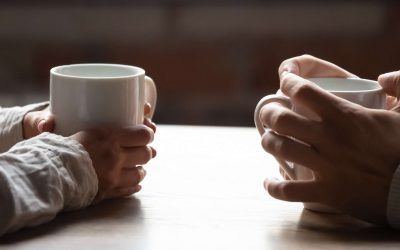A survey of 11,000 children found 22% of the girls and 9% of the boys said they had hurt themselves on purpose in the year prior to the questionnaire.
The self-harm statistics are included in The Children's Society's annual Good Childhood Report, which examines the state of children's wellbeing in the UK.
Self-harm is when people hurt themselves as a way of dealing with difficult feelings, painful memories or overwhelming situations and experiences. An 18-year-old woman who used to self-harm said she had started aged 12 in an attempt to deal with painful or overwhelming feelings.
She said: "It quickly became an obsession."
It can include everything from punching or hitting to cutting or burning.
The NSPCC says common reasons for self-harming include having relationship problems with family or friends . But parents separating or divorcing is by no means the only cause of self-harm in children. Neither does a divorce or separation have to lead to self-harm.
The report also suggests happy family relationships are the biggest positive influence on children's wellbeing. As a parent, you can make the process of separation easier on
your children. Find out what children should be able to expect from you and how you can talk and listen to your children about the separation CLICK HERE
You can also find some tips for grandparents on how to support the whole family during this time.
What adults can do to help a child who is self-harming
- Show you understand
- Talk it over
- Discover the triggers
- Build their confidence
- Show you trust them
- Choose who you tell carefully
- Help them find new ways to cope
The following link provides useful tips.: https://www.cafcass.gov.uk/grown-ups/parents-and-carers/divorce-and-separation/childs-voice-separation/
How to spot warning signs
- Look for physical signs such as cuts, bruises, burns and bald patches from pulling out hair. These are commonly on the head, wrists, arms, thighs and chest.
- The emotional signs are harder to spot:
- depression
- tearfulness and low motivation
- becoming withdrawn and isolated, for example wanting to be alone in their bedroom for long periods
- sudden weight loss or gain
- low self-esteem and self-blame
- drinking or taking drugs
- Source: NSPCC
Our team of family lawyers can support and assist you through the legal options and processes for child arrangements that put your children first and aim to minimise the impact of divorce and separation on their well-being. For a free initial consultation contact Sally Ward on 01245 228118 or at wardc@gepp.co.uk .
This is not legal advice; it is intended to provide information of general interest about current legal issues.



